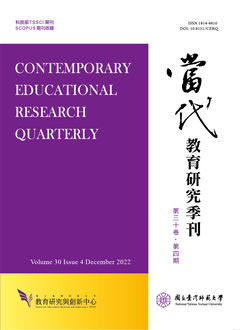

以往借用西方批判理論的本土教育論述尚未本土化,使得當前本土教育顯得淺薄空泛,並披上破壞族群的汙名色彩。因此,本文企圖將具有基本教義性質的本土化教育過渡到具有公民行動性質的在地化教育。以「村」的語境與G. Böhme的氣氛美學做為根基,論述學校空間「氛圍」與「尊嚴」之形塑。將以往從課程面向進行的本土教育,往空間面向移動,企圖形塑學校為「美學的權力機制」,在被功能化與升學主義宰制的學校空間文化中,重建人與物的尊嚴。「氛圍」訴說空間是會說話的;「尊嚴」則蘊含將物的形、色與質感往最適當的位置去安置的行動。本文以學校工作現場的隱闇(默會)知識做為組織與分析要點。文末以一所國中推動「社區有教室」課程的實踐經驗做為說明。
The western critical theory which was used to construct the Taiwan indigenization education theory has never been indigenized, and hence Taiwan indigenization education superficial and politically stigmatized for increasing ethnic struggle. This article attempts to build a discourse for connecting indigenization education, which based on Taiwanese essentialism, and the localization education, which based on civic participation. The discourse about the atmosphere and the dignity in the village, which partly derived from Gernot Böhme's Atmosphere Aesthetics, tries to construct the aesthetic power mechanism in the school. Mostly indigenization education in Taiwan focused on curriculum but this article emphasizes space-reconstruction and tries to liberate students and teachers from the functionalized school cultural space dominated by Taiwanese education fanaticism. 'Atmosphere' indicates that the spaces would 'speak', and 'dignity' refers to the actions that make the most proper arrangement of the shape, color and nature in the spaces. The tacit knowledge from practicing ‘The Classroom in the Community' curriculum in a remote junior school was analyzed for reiterating this new path.

本著作係採用創用 CC 姓名標示-非商業性 3.0 台灣 授權條款授權.
本刊國立台灣師範大學教育研究與創新中心
106台北市和平東路一段162號 | 電話: 02-7749-3670 | E-mail: cerecerq@gmail.com
教創中心 | 師大 | 電子報 | 線上投審系統
本刊由國家科學及技術委員會人文社會科學研究中心補助經費
© 2014 CERI-NTNU
